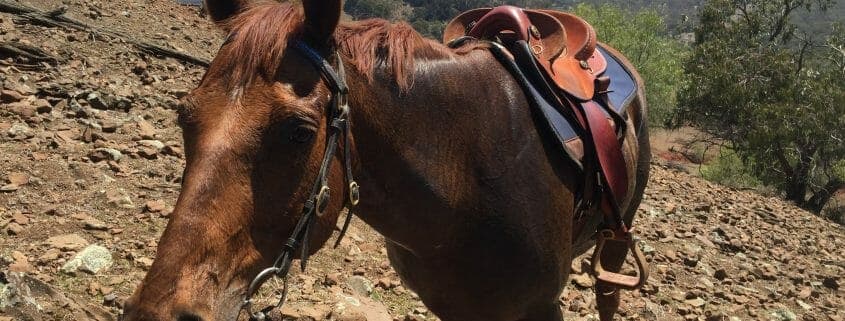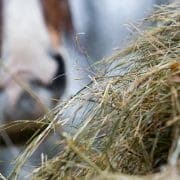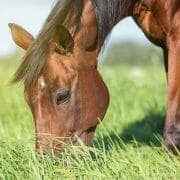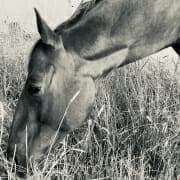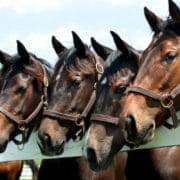The Link Between Regular Forage Meals and Gut Health
From experienced horsemen to attendees at educational seminars, many equine enthusiasts don’t actually know how a horse’s gut works and why forage is so important for horse health.
Did you know that the equine stomach never stops secreting gastric acid? So even when your horse is not eating, it is filling the lower part of its stomach up with acidic gastric juices. While the stomach is full, this isn’t an issue as the dense mat of fibre in the gut will stop the acid from splashing around and burning the unprotected lining of the upper section of the stomach.
Problems start when horses are off feed for long periods of time and end up with a pool of acid and an empty stomach. Combine that with the movement of being ridden and you get acid splashing up and quite literally burning holes, causing ulcers, in the top part of the stomach.
What can you do to help prevent this?
- Don’t exercise horses on an empty stomach – Provide a small meal of alfalfa (lucerne) hay before and after exercise.
- Provide regular small meals and constant access to hay, especially during times of stress such as trailering
- Provide turnout and grazing time as often as possible
Help us to educate people on how a horse’s stomach works so they can understand why forage and horse health go hand-in-hand, plus some very simple things they can do to keep their horse’s stomach healthy. Share this article on Avoiding Gastric Ulcers with them and have them understand that a horse’s stomach should never be empty and that as much as is practical you should never work a horse on an empty stomach.
Do you have a question or comment? Do you need help with feeding?
We would love to welcome you to our FeedXL Horse Nutrition Facebook Group. Ask questions and have them answered by PhD and Masters qualified equine nutritionists and spend time with like-minded horse owners. It’s free!
Click here to join the FeedXL Horse Nutrition Facebook Group

